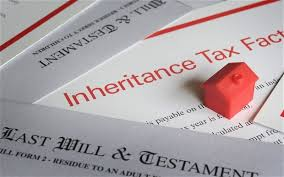Inheritance tax is a levy imposed on the estate of a deceased person before the assets are distributed to the beneficiaries. It’s a tax on the transfer of wealth and property, and ensures that the government receives a portion of every individual’s estate upon their death. The rate at which inheritance tax is charged can vary depending on the total value of the estate and any exemptions that may be applicable.

You will need to consult with a solicitor who specialises in inheritance tax to understand the specific obligations and options available for paying the tax. A transfer of equity solicitor such as those at https://www.parachutelaw.co.uk/transfer-of-equity-solicitor will be able to help and advise you on this process. Proper planning and professional guidance can help minimise the tax liability and avoid any penalties from HMRC.
Rate of Inheritance Tax
In the United Kingdom, inheritance tax is primarily charged at a flat rate of 40% on the taxable value of an estate above the nil-rate band threshold. While the standard rate of inheritance tax is 40%, there are circumstances where this rate can be reduced. One notable exception is the charitable bequest relief. If you leave at least 10% of your estate to a charity, the inheritance tax rate on the remaining estate is reduced down to 36%.
Inheritance Tax and Marriage/Civil Partnership in the UK
Being married or in a civil partnership can have different implications for the money that you inherit. Married couples or civil partners can leave money and possessions to each other when they die without having to pay any inheritance tax.
Responsibility for Paying Inheritance Tax
In the UK, inheritance tax is generally payable by the executor or administrator of the deceased’s estate.

When should inheritance tax be paid?
Inheritance tax is due for payment within six months of the end of the month in which the deceased passed away. If the tax is not paid by this deadline, HM Revenue and Customs (HMRC) may charge interest and penalties on the outstanding amount.
How is inheritance tax paid?
There are several options available for paying inheritance tax in the UK. The executor or administrator can pay the inheritance tax directly from the deceased’s estate before distributing the assets to the beneficiaries. If there are sufficient funds in the deceased’s estate, the inheritance tax can be paid from these funds.





